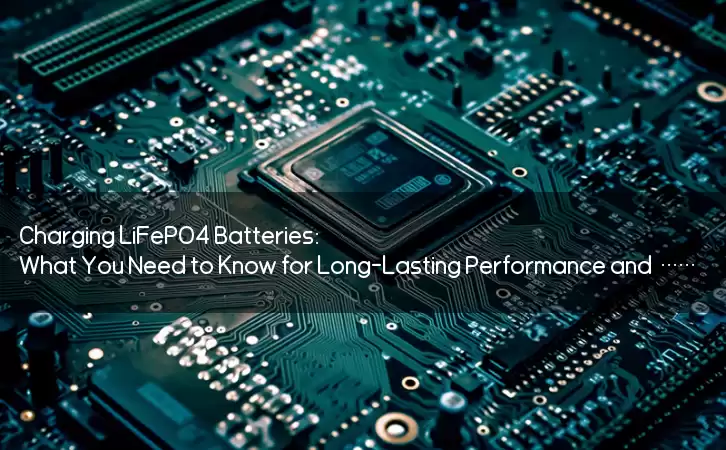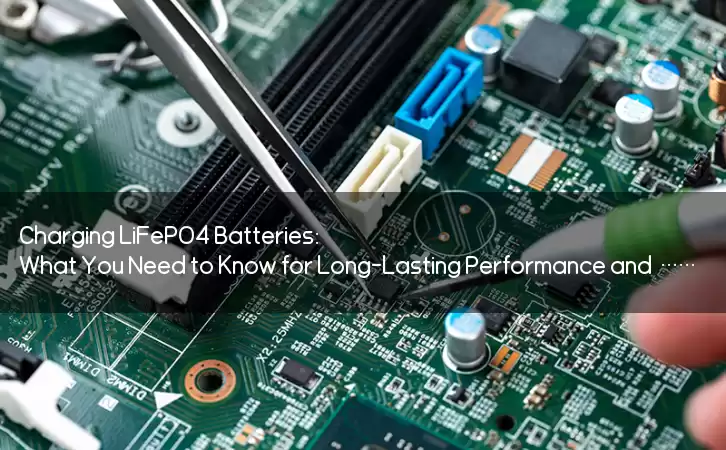Information Center
Charging LiFePO4 Batteries: What You Need to Know for Long-Lasting Performance and Safety
Published:2023-07-15 20:32:35 Author:Green WCND Views:81Lithium iron phosphate (LiFePO4) batteries have gained popularity in recent years due to their numerous benefits. They are durable, have a longer lifespan, and can withstand a high number of charge and discharge cycles. These qualities make them ideal for use in electric vehicles, renewable energy systems, and other applications that require reliable and long-lasting power storage. However, one question that often arises among LiFePO4 battery users is whether these batteries require a special charger.

In general, LiFePO4 batteries do not require a special charger. They can be charged using a standard charger that is compatible with their voltage and amperage requirements. However, there are some considerations to keep in mind when charging LiFePO4 batteries to ensure their longevity and performance.

Firstly, LiFePO4 batteries should not be overcharged. Overcharging can lead to irreversible damage and reduce the lifespan of the battery. Therefore, it is important to use a charger with an automatic shut-off feature or a charge controller that can regulate the charging process and prevent overcharging.
Secondly, LiFePO4 batteries have specific charging requirements. They should be charged at a lower current than traditional lead-acid batteries to prevent overheating and damage. The recommended charging current for LiFePO4 batteries is between 0.5 and 1C, where C is the capacity of the battery in ampere-hours. For example, a 100Ah LiFePO4 battery should be charged at a current between 50A and 100A.
Thirdly, LiFePO4 batteries can benefit from a charger with a desulfation mode. Desulfation is the process of removing sulfate crystals that can form on the surface of the battery plates during prolonged use. These crystals can reduce the battery’s capacity and performance over time. A charger with a desulfation mode can help to prevent this buildup and prolong the battery’s lifespan.
Lastly, LiFePO4 batteries can be sensitive to high temperatures during charging. It is recommended to charge them in a cool and well-ventilated area to prevent overheating and damage.
In conclusion, while LiFePO4 batteries do not necessarily require a special charger, it is important to choose a charger that is compatible with their specific voltage and amperage requirements. Additionally, a charger with an automatic shut-off feature, a desulfation mode, and a temperature sensor can help to prolong the lifespan and ensure the performance of LiFePO4 batteries. As with any battery, proper charging practices and maintenance can go a long way in maximizing their performance and lifespan.
Power Adapter Design and Customization Guide for Portable Electric KettlesI. Common Design Types for Portable Electric Kettle Power AdaptersPortable electric ke···
I. Common Design Types of Power Adapters External Independent Type (Most Common) Design: A standalone adapter (e.g., "black brick") connected to the p···
Handheld Vacuum Cleaner Power Adapter Selection GuideIntroductionHandheld vacuum cleaners have become a mainstream tool for household cleaning due to their port···
Drill Power Adapter Selection Guide.drill-container { font-family: Arial, sans-serif; line-height: 1.6; max-width: 800px; margin: 0 auto; padding: 20px; } .dril···





